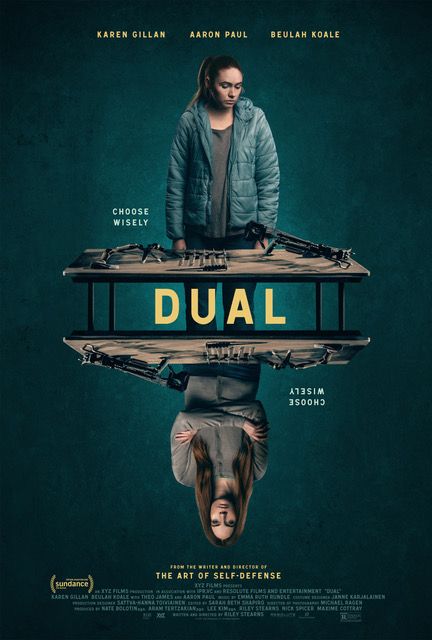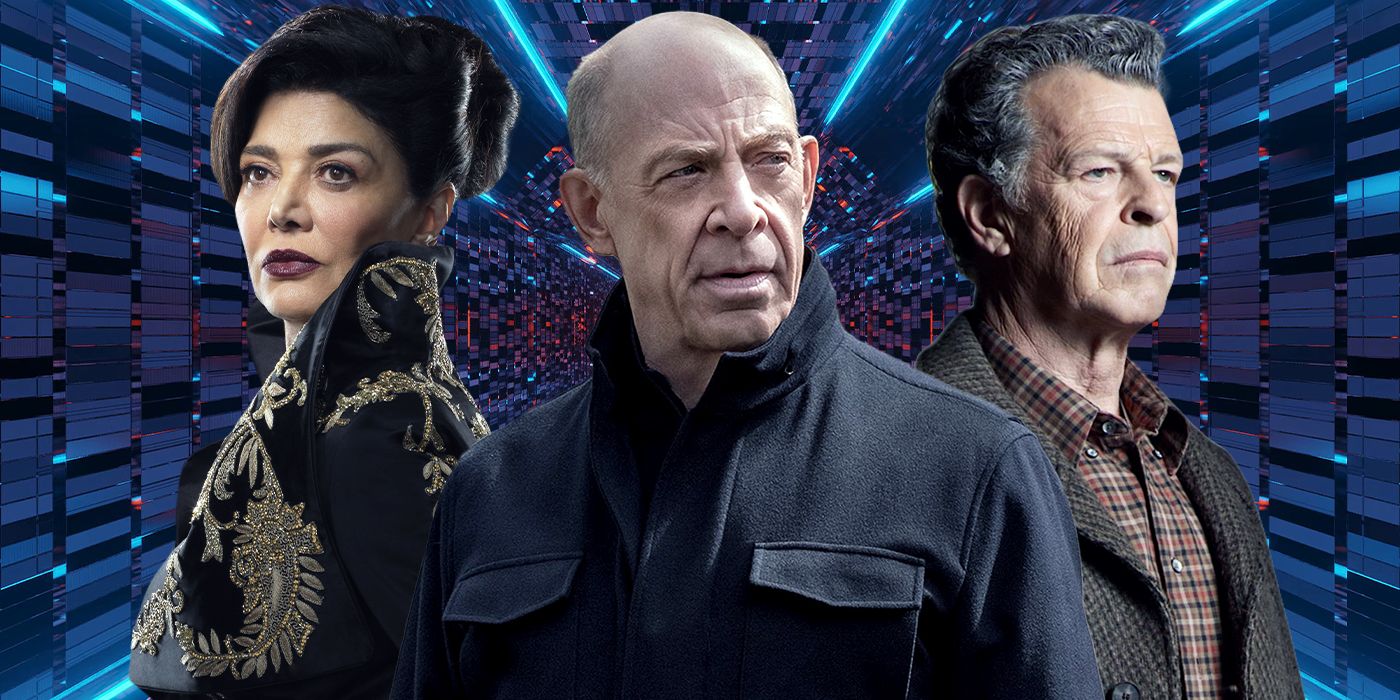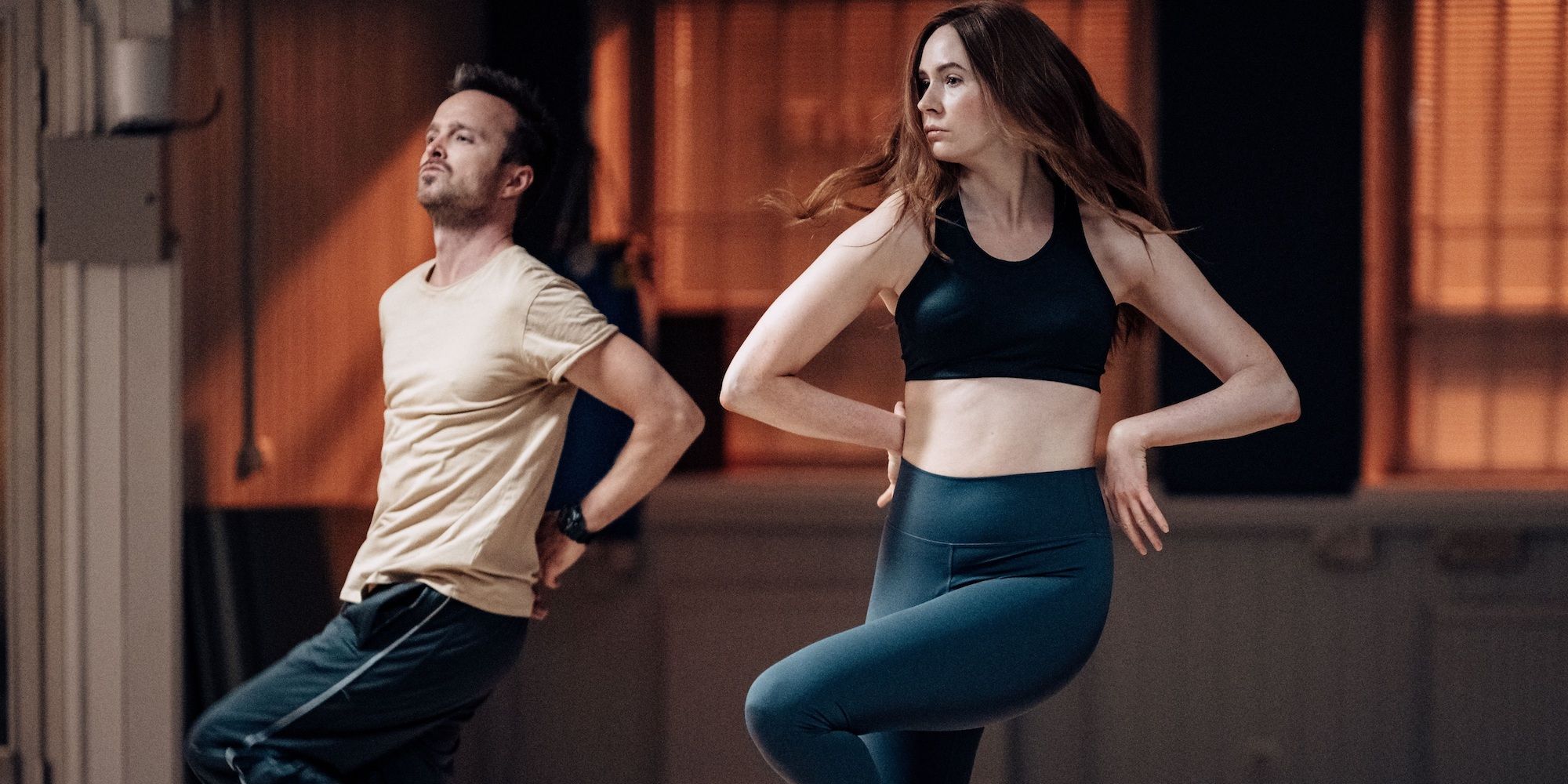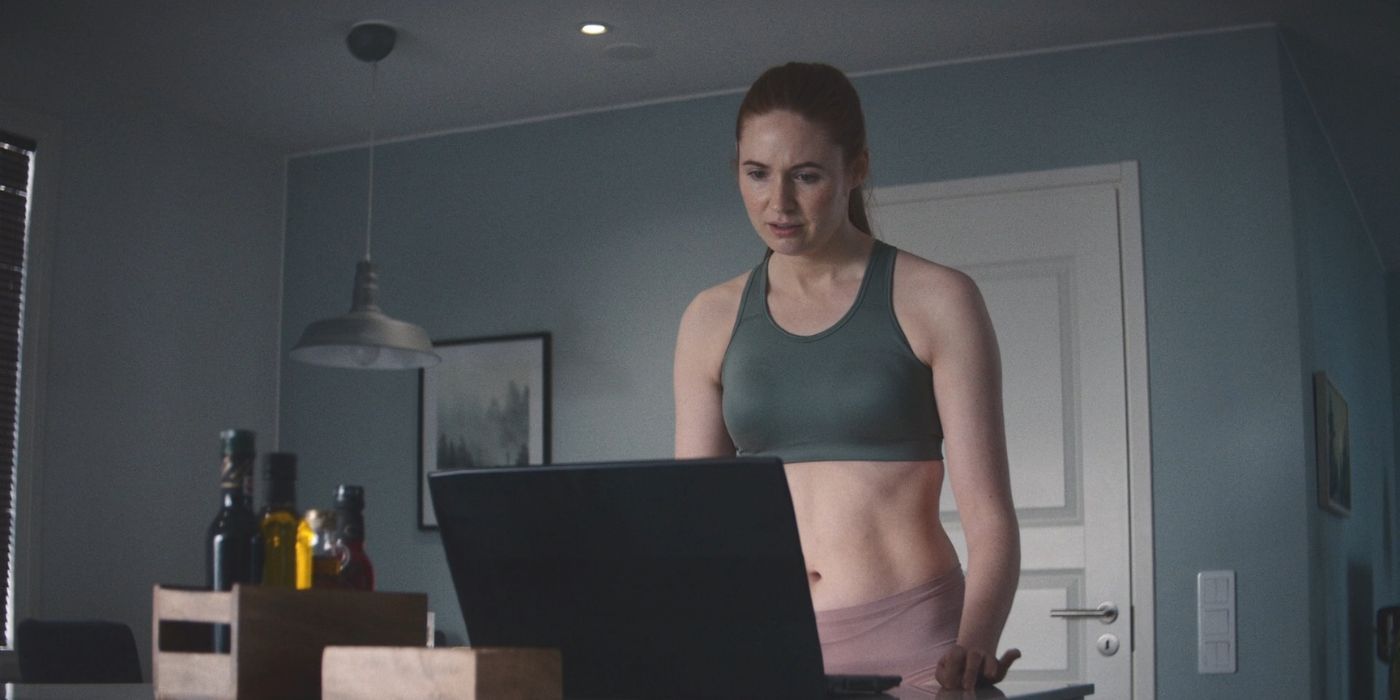The Big Picture
- Dual delves into deep existential themes with quirky humor and surreal performances, exploring life, death, and identity in a unique way.
- Karen Gillan shines in a role that transitions from a depressed loner to a badass warrior, delivering a comedic take on exploring life's meaning.
- Despite lacking big-budget visuals, Dual offers a digestible look at weighty subjects through humor and philosophical explorations of humanity's existence.
The best thing about science fiction movies is that they are places that allow the strangest dreams of humanity to play out in a safe place but to thrilling, terrifying, and sometimes hilarious effect. They are visual experiments in thought and philosophy and allow for the exploration of some very highbrow concepts. Sci-fi movies allow us the space to ask the big questions, what is life, what does it mean to live, and what does it mean to be human? Further still, they can delve deep into a person's inner life. Who am I? What am I? Dual (2022) is a satirical science fiction thriller written, directed, and produced by Riley Stearns, that explores these existential themes. The film stars Karen Gillan, Beulah Koale, Theo James, and Aaron Paul of Breaking Bad fame. Stearns does an exceptional job of poking fun at the absurdities of life and the natural human fear of dying and being forgotten, but also what it means to truly live, bolstered by unique and curiously understated performances.

Dual
A woman opts for a cloning procedure after she receives a terminal diagnosis but when she recovers her attempts to have her clone decommissioned fail, leading to a court-mandated duel to the death.
- Main Genre
- Sci-Fi
- Release Date
- May 20, 2022
- Director
- Riley Stearns
- Cast
- Theo James , Beulah Koale , Karen Gillan , Aaron Paul
- Runtime
- 94 Minutes
- Writers
- Riley Stearns
What Is 'Dual' About?
Dual is a film about mortality; what does it mean to live, especially within the context of death? It explores our anxieties about our ever-approaching deaths in a shallow yet prospectively philosophical drip feed. While exploring these themes is pretty surface level, given the endless possibility a film about raising your clone only to have to kill it could explore, it nevertheless presents a pretty humorous picture teeming with bittersweet irony. Enter Sarah, the dull and lonely woman ordering far too many tacos at her favorite Mexican food joint, distracting herself with pornography, surrounded by empty take-out containers, and relentlessly pursuing her absentee boyfriend, Peter (Beulah Koale), who does not love her. She lives in a painfully ordinary apartment bereft of personality and never leaves. It is safe to say that Sarah is not really living.
So, when Sarah starts throwing up blood and learns that she is suffering from a rare, incurable, and certainly terminal disease, she almost welcomes death. Deciding to spare her loved ones the pain of losing her, she has herself cloned. Sarah's duplicate will learn everything she can about the woman she is to replace and carry on in her absence. However, Sarah soon discovers that her clone is a very different person. Duplicate Sarah has blue eyes, which she points out are far more interesting than the Original Sarah's brown eyes. Duplicate Sarah is more of a vivacious person than the Original Sarah. Peter falls in love with the Duplicate, finding the woman he always wanted in her. A woman who likes to go out and have fun, who has better sex than her original, who is even loved more by Original Sarah's mother. Then, in a terrible twist of fate, Original Sarah finds that she will live, and since there cannot be two Sarahs, the pair are pitted against each other in a government-mandated fight to the death.
The Performances In 'Dual' Are Quirky and Surreal
Sarah meets Trent (Aaron Paul), a personal trainer skilled in the deadly arts and an expert in clone fighting. Their relationship is unique, different in tone from the seriousness and sadness of the film's early parts. Instead, it is imbued with wonderful humor delivered in deadpan dialogue that sounds a lot like a conversation between two Siris. There is a surrealness in how they interact, a type of detached monologue that gives them each an earnest quirkiness that's truly unique in the context of a sci-fi thriller. Gillan's character comes off as lacking basic self-awareness, which is both painful to witness and somehow endearing. At their first meeting, Trent asks Sarah if she wants to live. An essential question for someone about to enter a fight with their clone. If not, then why bother? Sarah answers that she does, but it sounds more like a question than a definitive answer because she isn't sure she has a life worth living.

The 20 Most Underrated Sci-Fi Shows You Haven't Seen (Yet)
To infinity and beyond (the usual sci-fi shows)!Aaron Paul's performance is oddly similar to Karen Gillan's, which is no accident. Trent is in some ways as lonely as her, but he still participates in life; he has a dog and wants to be a dancer; he even suggests that if Sarah does not wish to live, she can spend the last year of her life indulging in hedonistic excess. She can, in effect, go down in a blaze of glory, but Sarah does not want to do that. She wants to take control over her life, and their friendship is the vehicle by which Sarah matures. She takes self-defense courses, learns to dance, begins participating in life, and is rewarded with a life worth living. This is similar to the situation in the film's opening, in which Theo James' character takes on his clone. The clone lives because he closes the gap instead of shooting at his enemy from a distance. He runs through the field and faces the danger and then stabs Original Robert several times to death and is thus rewarded with life. Life is not a spectator sport; it is something you must participate in.
'Dual' Doesn't Rely on World-Building — And That's Intentional
One of the most refreshing aspects of Dual is, surprisingly, the film’s lack of world-building. Although it’s such a staple for the science fiction genre, Dual works because it chooses to focus solely on its characters and how they cope with their existential plights, using humor to mask their fear of dying and being forgotten. In an interview with Collider, director Riley Stearns shared that he first wrote Dual as a short story, which actually sheds light on how cloning became a societal norm. “So I had this alternate timeline history that it was developed during the Cold War to increase the amount of people in our military as a build-up, and then they ended up making it to where you could only use it for these medical situations.”
Despite having a clear idea of how the cloning technology came to be, Stearns ultimately decided it wasn’t necessary to explore it in the film – and he likes it that way. He says, “Any other movie would explain everything too much or have to because of the world that you’re in whereas in our tone and the setting of the movie and the way that it feels, you can just say it is and then it is, and that was more fun for me.” While it’s a creative decision that some would deem risky, leaving out much of the backstory of this world’s technology does ultimately make sense for Dual, which thrives on its humorously bleak exploration of mortality, rather than on the mechanics of the technology.
‘Dual’ Uses Humor To Explore Its Heavy Themes
The detached nature of the film's dialogue is the well from which the humor of the film springs. The way the characters talk so candidly and flatly beautifully undercuts the more serious implications of the films' themes. The surface-level nature of the dialogue undermines the depth of Stearns' philosophical exploration of mortality by presenting the audience with a woefully clueless automaton. The question at hand is what does it mean to be alive? And so Sarah's character is one who really doesn't know and this is reflected in the way she speaks to people in this detached and emotionless way that underlines how detached she is from her own life. This is highlighted by the fact that her clone speaks in the same matter-of-fact yet detached manner and is someone that people seem to like. The difference between them is that the clone participates in life instead of bed-rotting surrounded by take-out containers.
Karen Gillan's comedic performance in Dual is a humorous way of exploring one's life from the sidelines and seeing how terrible it can be watching somebody live your life better than you. Her arc from depressed loner to badass warrior is genuinely amusing. Her timidity gives way to a killer instinct that sees her begin to enjoy her life precisely because she has taken control of it. So, in the end, she dies free. At the same time, her clone becomes trapped in a life of expectations, losing her agency under the bondage of Sarah's old life in an ironic twist that undermines audience expectations. The plot of this film would be crushingly depressing if not for the comedic performances, which makes for a far more digestible film.
While Dual is a film that lacks the big budget and lush visuals that movie-goers might associate with the genre, it more than makes up for it with its quirky, surreal, and humorous performances that help to ease the pain of exploring such weighty life and death subjects. This film gets to the core of what science fiction is about — philosophical explorations of the nature of humanity's existence — while still delivering laughs despite the seriousness of the plot.
Dual is streaming on Netflix in the U.S.


